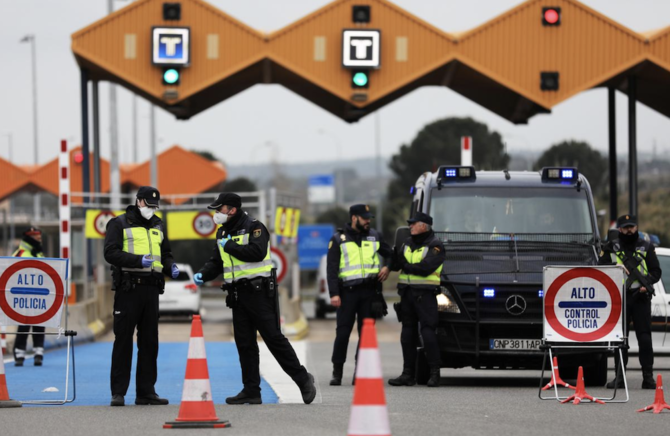
- ARAB NEWS
- 11 Jul 2025

Europe has quickly become the new hotspot of the coronavirus outbreak, with the trajectory of the per capita infection rate and deaths exceeding those of China at the height of the crisis there. The worst-affected countries, Italy and Spain, accounted for 35,000 cases and 2,900 deaths and 14,000 cases and 638 deaths, respectively, as of Thursday.
This brings to the fore what the EU can and will do about the coronavirus. While it took some time and several stops and starts, the European Central Bank (ECB) on Wednesday announced a bond purchasing program of €750 billion ($813 billion) and the bank’s chief, Christine Lagarde, vowed to do whatever it takes to keep the euro zone and the euro going. She had insisted beforehand that ECB efforts needed to be supported by fiscal measures at the national level.
Central banks and finance ministers have coordinated to the greatest extent possible. Several countries have announced packages of support, especially for small and medium-sized companies like retailers. France launched a €300 billion package, Germany’s Finance Minister Olaf Scholz vowed to provide unlimited credit to all businesses impacted by the coronavirus, and the state of Bavaria pledged a relief package of €10 billion. Affluent little Switzerland has also been hard hit and the federal government declared a state of emergency. While not in the EU, the country coordinated with the ECB and provided a fund of 100 billion Swiss francs ($102 billion) to support businesses. These measures are direly needed, as even big manufacturing companies such as the automakers are shutting down one by one — except for when they can retool their factories to produce ventilators for hospitals or protective equipment such as masks or gloves.
This is all so far so good. Economic coordination works to the degree possible when it comes to coordinating monetary policy. Still, when EU finance ministers tried to decide how to deploy a €400 billion relief fund, they could not agree.
Things get worse when it comes to border crossings and health care. The latter has been left, to a large extent, in the purview of national governments up to now.
Solidarity among the EU-27 will be important once the coronavirus abates. If the affluent north is not prepared to stand shoulder-to-shoulder with the impoverished south, it may well be the end of the EU.
Cornelia Meyer
Earlier this week, the EU started to seal its external borders to all non-EU citizens, except for residents or vital medical staff. When non-EU citizens arrived at Frankfurt airport on Wednesday, they were turned around immediately because the ban had been decreed while they were in the air. Most national carriers are either grounded or are working at a maximum of 20 percent capacity. Smaller airlines may not survive the virus outbreak.
Border closures, in particular, are not well coordinated, as EU member countries revert to the nation state model day by day. Austria was the first when it closed its borders to Italy, Switzerland, Germany and Spain (by air travel as there is no land border between Austria and Spain). One by one, Germany, Belgium, the Netherlands and Hungary closed their borders, except for freight transport, which is excluded for the time being, albeit with significant delays. European Commission President Ursula von der Leyen vowed that, while borders may close to people, they would remain open for freight to ensure the supply of food and essential goods. Still, Germany did not allow exports of protective clothing, face masks and gloves until other EU health ministers intervened.
While all European countries seem to have converged on a stay at home/isolation policy and public transport has been severely limited, if not ground to a halt altogether, there was a substantial time lag along the way. A more coordinated approach could have done a lot to limit the spread of the virus — the emphasis being on earlier implementation of more stringent measures.
A pandemic like the coronavirus is global in nature and needs global response mechanisms, which have been woefully absent so far. It is a case for the UN and the World Health Organization (WHO) and for their funding. Governments should also heed their advice, which, particularly in the case of the WHO, many have too often ignored at their peril.
COVID-19 has also brought to the fore the limitations of the EU. If ever there was a case for the 27 countries to cooperate closely and engage in the same health policies, this was it. It cannot be that France isolates and the Netherlands banks on herd immunity.
When the epidemic has abated, it will be time to take stock. Solidarity among the EU-27 will be important as they try to rebuild their ravaged economies. If the affluent north is not prepared to stand shoulder-to-shoulder with the impoverished south, it may well be the end of the EU, as it will have lost its raison d’etre. In the meantime, the whole of Europe should coordinate and show solidarity when it comes to health care policy and ensuring the supply of essential goods to the entire population.
Cornelia Meyer is a business consultant, macro-economist and energy expert. Twitter: @MeyerResources